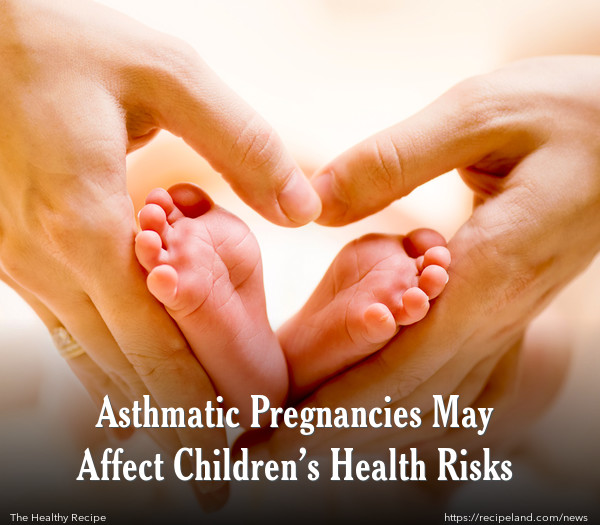New research from Denmark shows a link between maternal asthma during pregnancy and increased risk of diseases in her children.
This study only applies to mothers who suffered from severe asthma or asthma attacks during pregnancy.
Researchers suggest that these findings could encourage asthmatic mothers and health care professionals to work harder at controlling asthma symptoms during pregnancy. The overall health of children whose mothers suffered from asthma attacks during pregnancy should also be monitored more closely.
Several previous studies have found a link between asthma attacks, and the use of oral corticosteroids to treat the pregnant mothers, with smaller gestational age (SGA) infants and even an increase in birth defects.
“Asthma exacerbations during the first trimester of pregnancy were found to significantly increase the risk of a congenital malformation.”(1)
“Mothers with severe and moderate asthmaduring pregnancy have a higher riskof SGA babies than those with mild asthma.”(2) It is important to maintain the mother and her baby’s health during pregnancy by keeping her asthma symptoms under control as much as possible.
This large Danish study collected data on nearly 67,000 pregnant mothers from 1996 to 2002. Of these women, slightly more than 6% of these women experienced an asthma attack at some time in their pregnancy. Their children’s health was then documented until they were around six years old.
The research showed that maternal asthma generally increased the risk of many childhood diseases in their infants – ranging from infections, nervous system and respiratory problems, parasitic illnesses, as well as skin and ear diseases.
Researchers were not surprised by these results, but had not anticipated such a wide range of postnatal health problems associated with maternal asthma during pregnancy. Fortunately, there are many ways to help control and treat asthma symptoms during pregnancy.
Dr. Meinlschimdt stated: "There are different types, causes and treatments of asthma - so mothers should discuss individual strategies to reduce their asthma risk with their GPs or other health care providers, considering benefits and risks of asthma treatment for mother and offspring."(3)
Talking with your doctors about how best to keep your asthma under control during pregnancy is especially important, says Dr. Alan Baptist, Director of the Asthma Program at the University of Michigan; “Because, in fact, for about one-third of women with asthma, their asthma actually worsens with pregnancy.”(3)
Avoiding steroids and other asthma medications during pregnancy is the best option when possible. But Dr. Baptist also points out that it “has been shown over and over again is that it's far worse to have uncontrolled asthma than any potential drug side effects.”(3)
SOURCES:More information about controlling your asthma during pregnancy while keeping your baby safe can be found through the National Asthma Council Australia at: https://www.nationalasthma.org.au/handbook/pregnancy-and-asthmaReferences: (1)Blais, L., & Forget, A. (2008). Asthma exacerbations during the first trimester of pregnancy and the risk of congenital malformations among asthmatic women. The Journal Of Allergy And Clinical Immunology, 121(6), 1379. doi:10.1016/j.jaci.2008.02.038 (2)Firoozi, F., Lemière, C., Ducharme, F., Beauchesne, M., Perreault, S., Bérard, A., & ... Blais, L. (2010). Effect of maternal moderate to severe asthma on perinatal outcomes. Respiratory Medicine, 104(9), 1278-1287. doi:10.1016/j.rmed.2010.03.010(3)Gunther Meinlschmidt, Ph.D., division of clinical psychology and epidemiology, department of psychology, University of Basel, Switzerland; Alan Baptist, M.D., M.P.H., assistant professor, and director, asthma program, University of Michigan, Ann Arbor; September 2013, Pediatrics










Comments